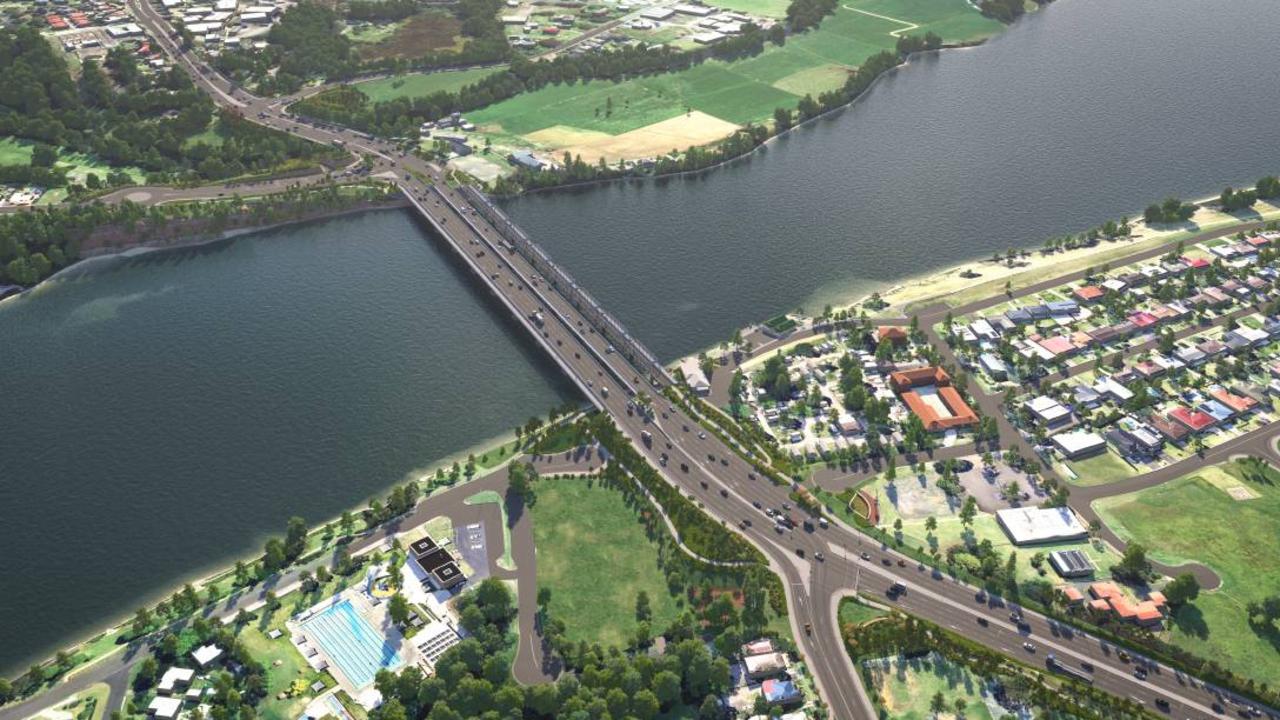US Embassy in Iraq under attack by Shiite militiamen in Baghdad
Donald Trump has blamed Iran after the US Embassy compound in Baghdad setting it on fire as the Pentagon announced it was sending in extra troops.
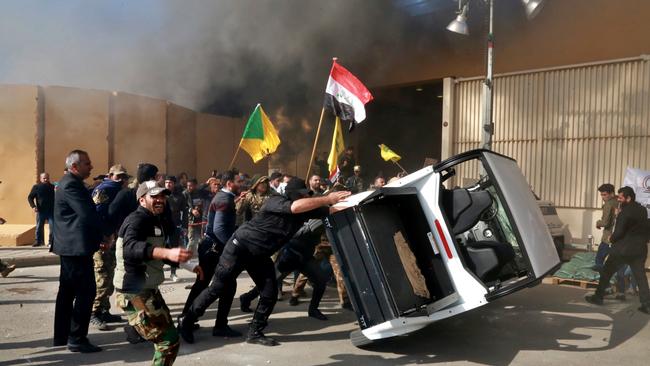
News
Don't miss out on the headlines from News. Followed categories will be added to My News.
US President Donald Trump is blaming Iran for a breach of the US Embassy compound in Baghdad and is calling on Iraq to protect the embassy.
Mr Trump tweeted that “Iran killed an American contractor, wounding many.”
Mr Trump said, “We strongly responded, and always will. Now Iran is orchestrating an attack on the US Embassy in Iraq. They will be held fully responsible. In addition, we expect Iraq to use its forces to protect the Embassy, and so notified!”
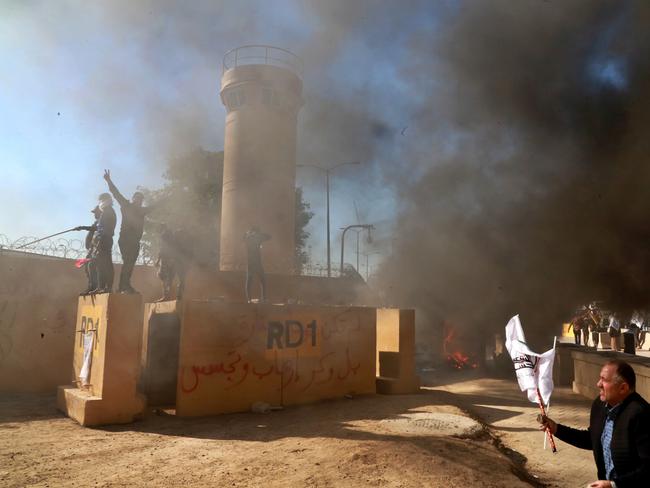
Dozens of Iraqi Shiite militiamen and their supporters broke into the US Embassy compound in Baghdad, smashing a main door and setting fire to a reception area, prompting tear gas and sounds of gunfire, angered over deadly US air strikes targeting the Iran-backed militia.
Defence Secretary Mark Esper said that the Pentagon is deploying extra troops to Baghdad to provide security for the US embassy.
“The Department of Defence is working closely with the Department of State to ensure the security of our Embassy and personnel in Baghdad,” Mr Esper said in a statement. “We are sending additional forces to support our personnel at the embassy.”
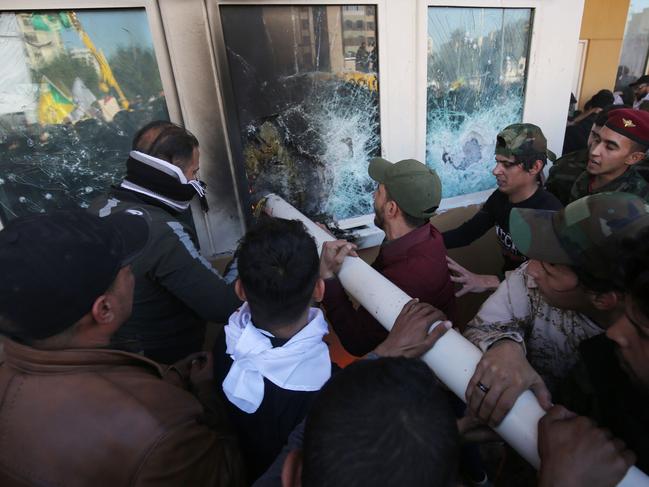
Mr Esper gave no details, but the deployment is likely to involve a small number of US Marines, according to a US defence source.
“We have made clear the United States will protect and defend its people, who are there to support a sovereign and independent Iraq,” the State Department spokesperson said. “We are closely monitoring the situation in Iraq and call on the Government of Iraq to protect our diplomatic facilities per their obligations.”
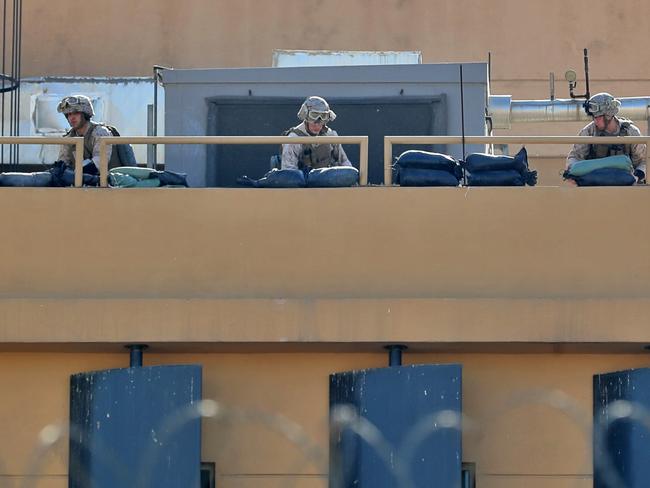
A man on a loudspeaker urged the mob not to enter the compound, saying: “The message was delivered.”
US personnel at the American embassy in Baghdad are safe and there are no plans to evacuate, the State Department said.
“Our first priority is the safety and security of US personnel,” a State Department spokesperson said in a statement.“There are no plans to evacuate Embassy Baghdad.”
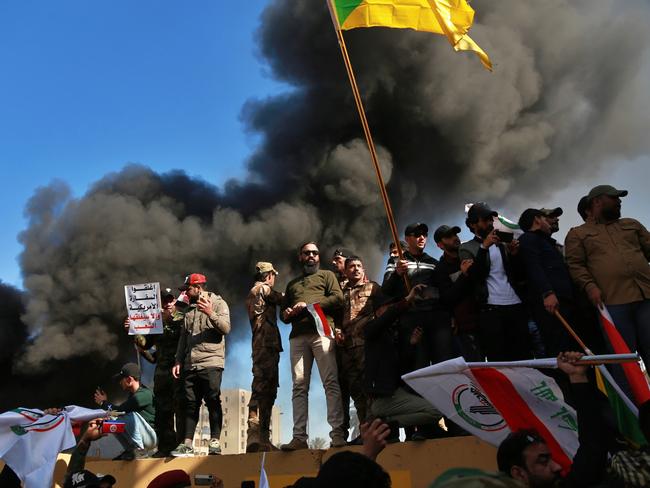
It followed deadly US air strikes on Sunday that killed 25 fighters of the Iran-backed militia in Iraq, the Kataeb Hezbollah.
The US military said the air strikes were in retaliation for last week’s killing of an American contractor in a rocket attack on an Iraqi military base that it had blamed on the militia.
The developments represent a major downturn in Iraq-US relations that could further undermine US influence in the region and also weaken Washington’s hand in its maximum pressure campaign against Iran.
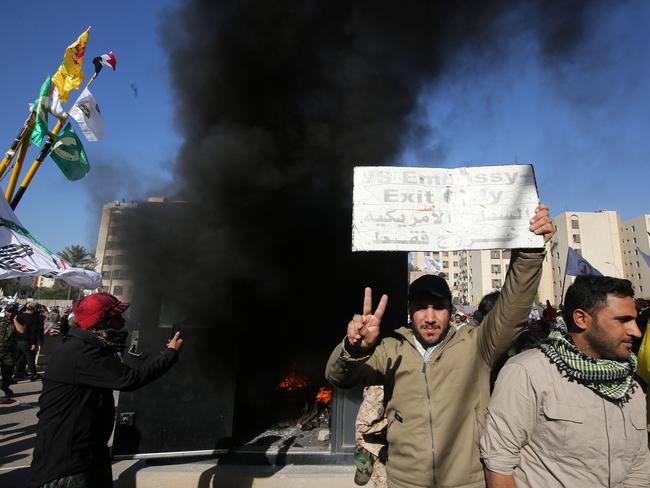
Iraq has long struggled to balance its ties with the US and Iran, both allies of the Iraqi government. But the government’s angry reaction to the US air strikes and its apparent decision not to prevent the protesters from reaching the embassy signalled a sharp deterioration of US-Iraq relations.
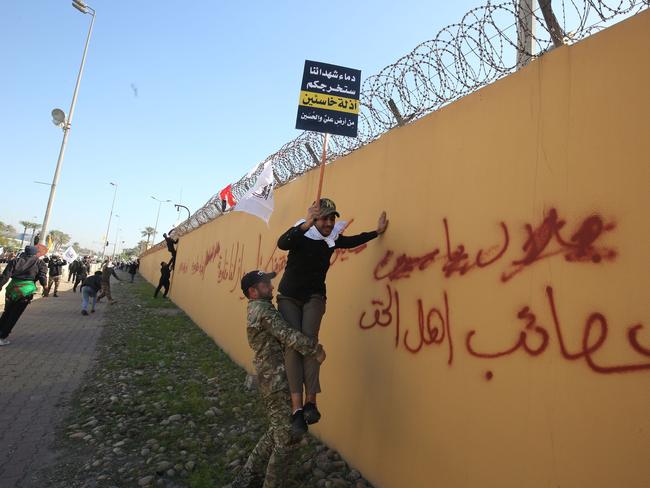
Iraqi security forces made no effort to stop the protesters as they marched to the heavily-fortified Green Zone after a funeral held for those killed in the US air strikes, letting them pass through a security checkpoint leading to the area.
Dozens of protesters pushed into the embassy compound after smashing the gate used by cars to enter the embassy.
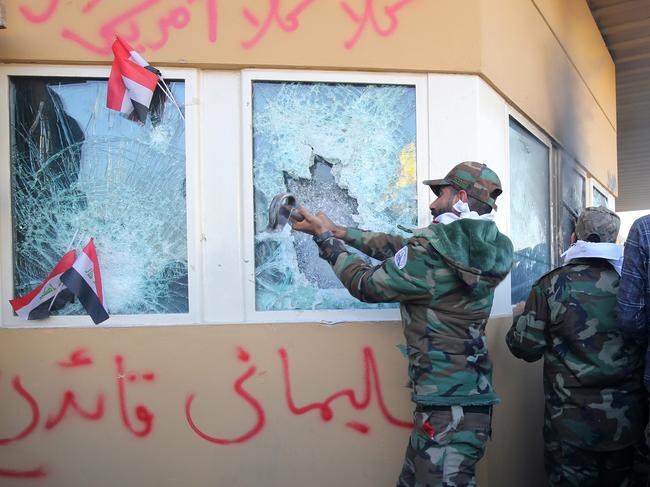
The protesters, many in militia uniform, stopped in a corridor after about 5 metres, and were only about 200 metres away from the main building.
Half a dozen US soldiers were seen on the roof of the main building, their guns were pointed at the protesters.

Smoke from the tear gas rose in the area, and at least three of the protesters appeared to have difficulties breathing.
It wasn’t immediately known whether the embassy staff had remained inside the main building or were evacuated at some point.
There was no immediate comment from the US Embassy.
The protesters hanged a poster on the wall: “America is an aggressor,” and some commanders of militia factions loyal to Iran joined the protesters.
Yassine al-Yasseri, Iraq’s interior minister, also appeared outside the embassy at one point and walked around to inspect the scene.

He said that the prime minister had warned the US strikes on the Shiite militiamen would have serious consequences.
“This is one of the implications,” Mr al-Yasseri said. “This is a problem and is embarrassing to the government.”
He said more security will be deployed to separate the protesters from the embassy, an indication the Iraqi troops would not move in to break up the crowd by force.
Earlier, the mob shouted “Down, Down USA!” as the crowd tried to push inside the embassy grounds, hurling water and stones over its walls.

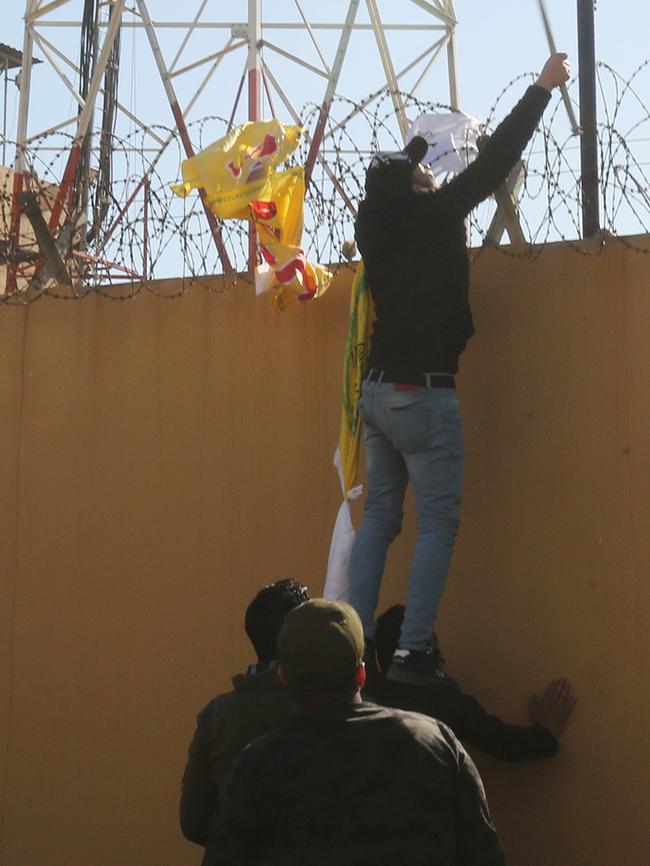
They raised yellow militia flags and taunted the embassy’s security staff who remained behind the glass windows in the gates’ reception area and also sprayed graffiti on the wall and windows.
The graffiti, in red in support of the Kataeb Hezbollah, read: “Closed in the name of the resistance.”
Also, hundreds of angry protesters set up tents outside the embassy.
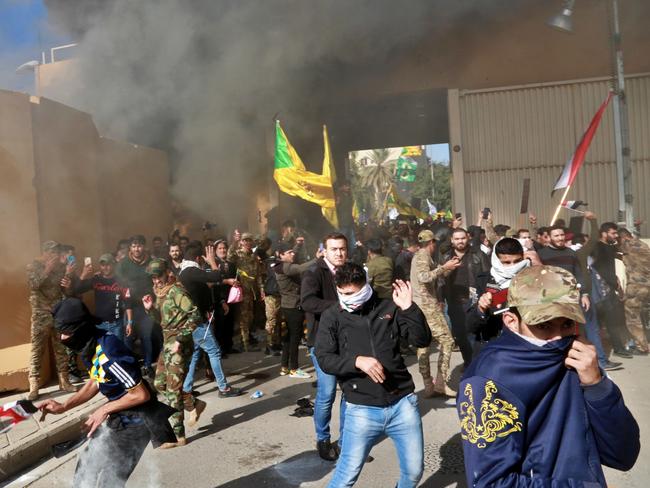
As tempers rose, the mob set fire to three trailers used by security guards along the embassy wall.
No one was immediately reported hurt in the rampage and security staff had withdrawn to inside the embassy earlier, soon after protesters gathered outside.
Originally published as US Embassy in Iraq under attack by Shiite militiamen in Baghdad

